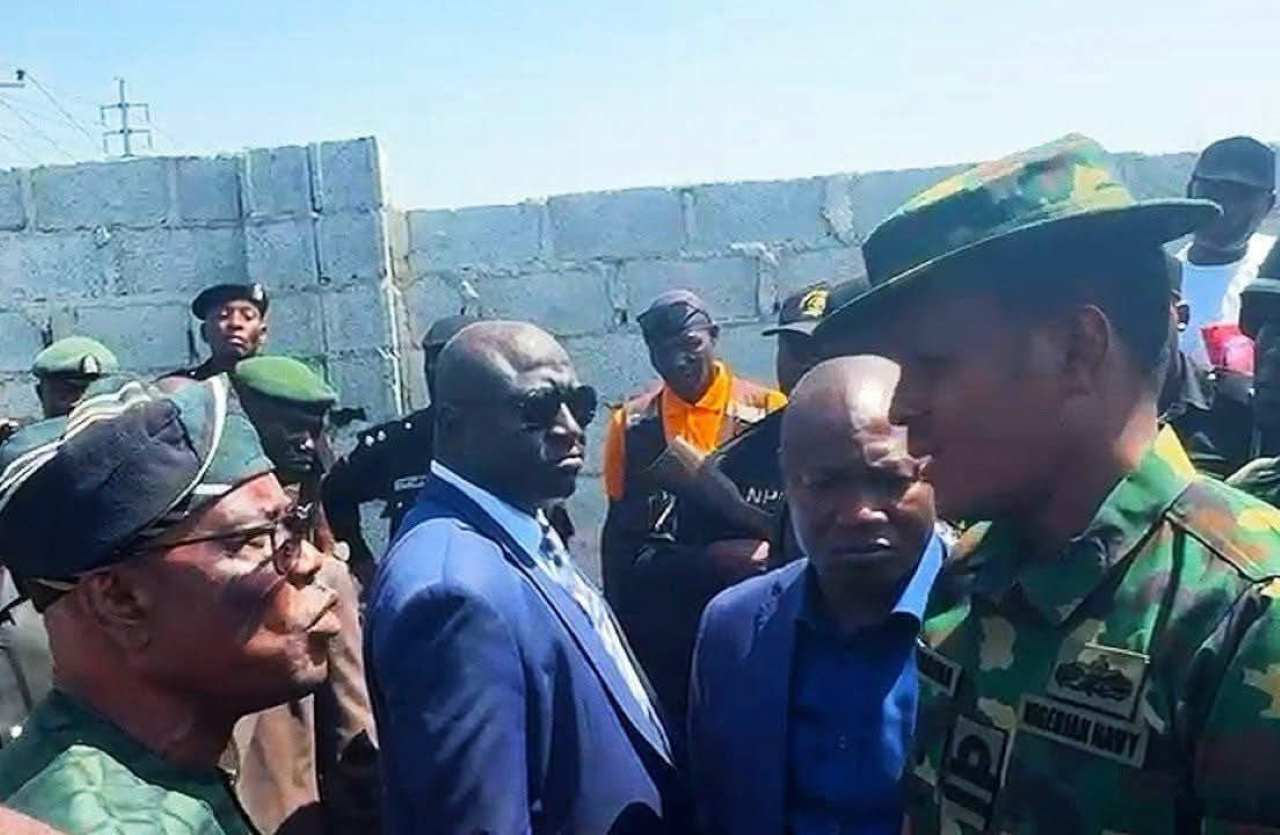
With the minimal successes recorded by South-East governors in stemming the tide of insecurity in the area after their failure to jointly set up the Ebubeagu Security Network, there are concerns about the sustainability of these current efforts and how these measures can effectively solve insecurity in the zone, LAWRENCE NJOKU reports.
Although insecurity is gradually ebbing in the South-East owing to isolated measures adopted by governors in the zone, concerns are still mounting regarding how they would fully rout out the malaise after the failed bid to establish a regional security outfit codenamed “Ebubeagu.”
A few weeks ago, a minibus mounted with a public address system, drove around the Enugu metropolis ferociously warning native doctors, especially those chased out of Anambra State to either refrain from their practice or relocate to another state.
The announcers further urged those with trusted practices to register with the state government or be prepared to face the wrath of the law, warning: “Enugu cannot accommodate you.”
The warning followed reports that some native doctors who ran away from Anambra State in the wake of the ongoing onslaught were relocating to Enugu State to settle.
That report created some tension and increased insecurity in the state.An investigation by The Guardian showed that preventing developments like this, led leaders and governors of the South-East region to opt for a regional security outfit in the wake of the widespread insecurity that ravaged the area in 2021.
The regional security outfit was to be jointly funded and equipped by them. The move, however, refused to fly after a committee of security experts was inaugurated to work out its modalities.
Ebubeagu Security Network, fashioned after Operation Amotekun in the South-West was also to oversee and monitor the activities of vigilante groups in the region; act as an intelligence gathering base, and ensure that there are no ungoverned spaces and blind spots in the zone. It was supposed to have a centralised command in Enugu State. Each state was to respond with what it could bear in terms of human and material contributions while they crisscrossed the entire region for improved security.
A committee, which had the attorneys general of the five states with Major General Obi Umahi (Retd), elder brother of then Governor of Ebonyi State, Dave Umahi as chairman was set up to draw its operational modules and midwife it. The committee’s membership included prominent Igbo sons and daughters.
However, Umahi resigned a few months after he was assigned the task of nurturing the security outfit after he complained of the governors’ failure to fund the committee. He also claimed that the right environment was not provided for his committee to operate.
A further investigation showed that the Ebubeagu Security Network could not fly because of the absence of appropriate legislation for its formation and operation with all the states having their vigilante services.
Sources stated that getting the outfit to become fully operational would have required an amendment to the existing laws to allow for collaboration among the various groups to enable its members to share information with their colleagues in other states.
It was further observed that though the governors agreed to set up the regional outfit, there was no plan on how to equip and sustain it, an indication that it was churned out without proper planning.
When it became obvious that Ebubeagu had failed, Umahi pointed out that tackling insecurity in the region required the governors working together, even as he stressed the importance of a seamless flow of information and tactics from local points to the outfit, and the central controlling structure. He advised the governors to endeavour to implement a unified security system simultaneously and uniformly in the interest of the region.
With Ebubeagu failure, the five South-East governors resorted to the formation of different security outfits with various operational strategies to tackle insecurity in their states.
While Abia State came up with the Homeland Security outfit to add to the new “Operation Crush,” which it funds, Enugu State moved higher with a technology-based Artificial Intelligence (AI) security system, which saw to the deployment of CCTV cameras in strategic locations in the metropolis, as well as, fortification of the Police Distress Response Squad. There is also the security trust fund whose primary objective is to provide support to security agencies operating within the state by equipping them with necessary crime-fighting equipment and resources.
Recently, the state government launched a N20 billion securitytrust fund to sustain security. In rural communities of the state, there exist the Forest Guards/Neighbourhood Watch whose activities are coordinated by the local councils.
In Ebonyi State, what was known as Ebubeagu was dissolved by the court following the discovery that it was being used as a tool against perceived political opponents of the immediate past administration of the state. But the state government has since been funding the services of vigilante groups. A similar situation is playing out in Imo State where the state government has provided operational vehicles and security gadgets for the State Police Command to complement the neighbourhood activities.
For Anambra State, Governor Charles Soludo, in January this year, at the height of non-judicial killings, kidnappings among other negative vices that rocked the state signed into law, the Anambra Homeland Security Law 2025, and also launched a security outfit code-named Agunechemba. This was accompanied by the procurement of 200 security vehicles, installed with tracking devices. The state government also deployed AI-powered surveillance cameras to different communities in the state.
The new law, which has 20 clauses also tried to address the primitive acquisition of wealth by questionable means, other than known lawful means of wealth acquisition, since there was abundant evidence to believe that insecurity thrived in the state because of the get–rich–quick syndrome and the presence of native doctors who have yielded their services to perpetuate crimes.
It is the full application of this law by the Agunechemba and regular police outfits that has put many criminals and their sponsors on their toes with the majority of them relocating to other states in the South-East region to avoid being caught, or to continue in their trade.
On Wednesday, March 12, 2025, the Anambra State Commissioner of Police, Ikioye Orutugu, stated that the state has achieved a significant milestone policing duties after the state witnessed “one month without a single gunshot or killing.”
He attributed the feat to divine grace, security collaboration and community cooperation and appealed for more support to security agencies. His assertion was not far from that of his counterpart in Imo State, CP Aboki Danjuma, who explained that sustained community support and collaboration were impacting positively in tackling insecurity in the state.
He said the command was making incredible breakthroughs in curbing crime and criminality in the state. Only recently, the Chief of Defence Staff, Gen. Christopher Musa, reviewed the security situation of the region, and thereafter passed a verdict that things were shaping up.
The fact that the situation was gradually improving, he said, can be gleaned from the Monday sit-at-home, which is wearing off. However, reacting to the individual efforts made by the governors to improve security, a security consultant, Dandison Egwu, stressed the need for coordinated effort among the five states for improved efficiency and sustainability.
“The way the zone is interconnected, you cannot have isolated efforts by individual states and expect it to achieve the desired goals. I agree that the governors on their own have made tremendous improvements in security in their various states, but are these efforts sustainable? Enugu State has fully embraced technology; Anambra State has made laws that it is implementing now and achieving results. But somehow, you would discover that when you solve a problem in one state, the neighbouring state suffers. That is why, currently, some criminals that escaped from Anambra State are hiding in neighbouring states including Enugu State.
“If you have a situation where you can track criminals and their sponsors beyond your boundaries, it makes for greater impact. I thought the governors would have embraced the Ebubeagu Security Network because it had a broader perspective that could have addressed these issues better than individual approaches. Why these efforts are working now is because of those who initiated them. So, we should begin to ask what happens when those that initiated these measures are out of office,” he said.
The Executive Director of Egwu Associates added that a workable framework was necessary to sustain current efforts by the governors. Also speaking, Mr Dan Ukwu, of the Daniel Ukwu Leadership Foundation, decried what he described as a lack of coherence and political indifference by governors of the region in the affairs of the people. He said the idea of individual governors resorting to their various methods in tackling insecurity was not sustainable and remains unprofitable.
“That is why the Monday sit-at-home has not ended in spite of the negative impression it has created on the economy of the region and its people. When you are solving the issue in Enugu, you may not be solving the same in Imo State or Anambra State. But where there is an agreement and unity of purpose, you tend to achieve more.”
He continued: “Why Ebubeagudid not succeed is because they refused to fund it and that was because they did not trust themselves. So, a situation where our leaders cannot sacrifice for the people, who voted them into office is a problem. Therefore, whatever improvement we are making now in security is ephemeral. We need to move beyond this. We have a South-East Governors Forum that has failed, but this should not continue to be our story.”
A former Minister of Power, Prof Chinedu Nebo, who also acknowledged that the governors’ efforts were improving security in the region, lamented their inability to work together to achieve a more sustainable security system.
He said: “It is so unfortunate that in the southeast, the governors have refused to work together and that is because of the political parties that they belong to – You have APC, APGA, PDP, and Labour. In the Igbo adage, we say “Igwebuike’ (Strength is power).
A situation where you do your things individually will have an effect, but the cumulative effect of working together and the synergy therefrom would have
strengthened their efforts even much more than what they are doing individually.
“We still have problems at the farms where Fulani herdsmen are sacking our farmers.raping our daughters and wives and kidnapping people and some Igbo youths are joining them.
Such situations require us to unite to equip local vigilantes and those doing their best to secure their communities. Many businesses have been lost because of insecurity and that does not augur well for the South-East region and Nigeria at large.”.






